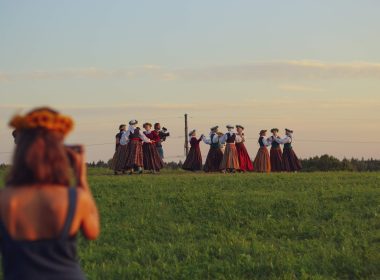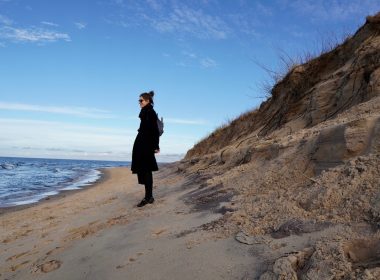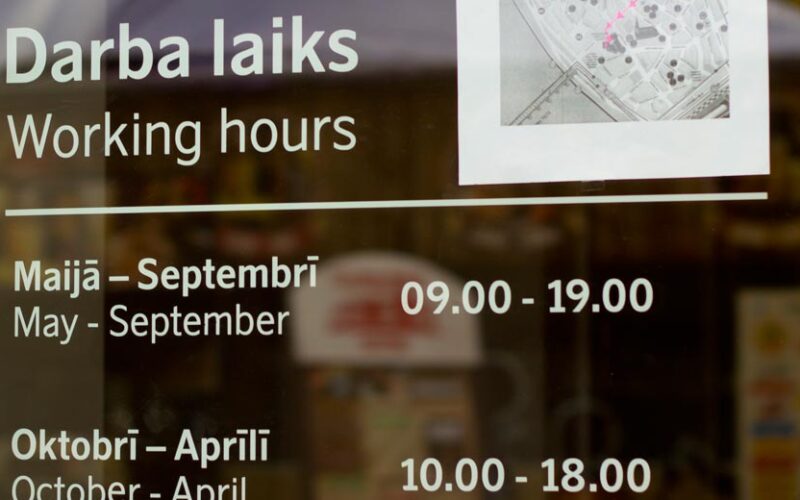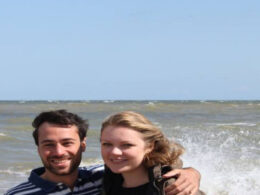Before moving to Latvia, one of the first questions I wanted to ask as a native English speaker was “Will I be able to get by in Latvia with English?”
The answer so far has been yes, but with a few caveats and some useful phrases.
First of all, I have a girlfriend who is a native Latvian speaker so when dealing with complex things like setting up the internet account for our flat, dealing with buying furniture online or setting up a mobile phone contract, she’s been there to help and either translate or deal directly with people.
Getting by with English very much depends on where you are. In the centre of Riga, most younger people are able to speak at least a little English. If you’re at a supermarket, or a store, and the person behind the till looks under 35, then chances are they’ll speak good enough English to help with your transaction.
If the person you speak to is older, then there’s not as much chance you’ll have someone who can speak English, but I have still come in contact with plenty older people who at least have a little bit. Enough to tell me “no electricity” or “we have a delivery for you“.
In the city, I’d say that most people are used to dealing with people who don’t have Latvian language skills. Tourists, exchange students and expats are not unusual.
At markets, you may find less English speakers, so it’s useful to learn a few phrases and some numbers to help you. I’ve heard stories that some sellers at the markets may try to take advantage of tourists, so make sure you keep an eye on prices, and if you feel you’re being taken advantage of, walk away. There are plenty stalls – especially at Riga Central Market – so you have choices.
Also worth noting – Latvian isn’t the only language spoken in Latvia. A percentage of people also speak Russian. Some speak both languages, some speak both plus English, and some only speak one or the other. Again most younger people have at least a small understanding of all three languages, but older generations perhaps only know Latvian or Russian.
Bear in mind that those over the age of 40 may have other language skills because during the Second World War or the following Soviet occupation they relocated to elsewhere in the world before returning to Latvia after it regained independence. I know of a fair-sized Canadian-Latvian, Australian-Latvian and British-Latvian contingent that exist in the city.
In Vecrīga or the “old town”, most establishments will be able to deal with English speakers. The further out of town you go, the less likely people will so easily converse in English.
Some restaurants have English on their menus, some even have separate English menus.
Supermarkets and food shops generally don’t have English on all the products, but pictures help, and once you know the Latvian words for milk (piens), sugar (cukurs), butter (sviests), cheese (siers), cream (krējums) and any other things you’ll need – you’ll probably be fine.
For those who speak to you in Latvian, it helps to be able to explain that you don’t understand and to ask them to speak in English if they can. I often use the phrase:
“Es nesaprotu latviski” – “I don’t understand Latvian”
And a couple of others that help:
“Angliski, lūdzu” – “English please”
“Vai jūs runājat angliski ?” – “Do you speak English?”
I have a friend who’s been here a bit longer than me. He’s a Canadian expat, and he often explains nicely (in English) that he’s going to try speaking in Latvian. When he does, those he speaks to are far more forgiving of any mistakes, and often welcome the interaction and attempts to speak the native language. Sadly, my own Latvian skills aren’t good enough for that yet.
Learning Latvian
I could write a separate post about this, but just as a quick primer, there are a few options for learning Latvian. Living here helps, since sometimes you may have no choice but to speak Latvian, and being surrounded by the language and people using it will definitely speed up the learning process.
For those who aren’t here yet, there are books such as the “Teach Yourself” series, a couple of half-decent iPhone/iPad apps (not familiar with Android options I’m afraid), websites which can give you a quick intro and enough to get by and there are also classes for those who wish to spend a bit more to learn.
Hot tip: If you can find a book shop that sells learning aids for school children to learn English – you can use these the other way round. I have a few sheets with pictures and words, as well as a book which is pretty useful for learning your nouns.
The bottom line here is, you can get by on English, and a handful of people do, but for those who are serious about living here, it would be advisable to learn at least a bit of useful Latvian, so that if you find yourself in a squeeze, you’re not completely stuck.
—
Found this post insightful? Continue with Giulia’s account of learning not Latvian, but Russian in Latvia!











